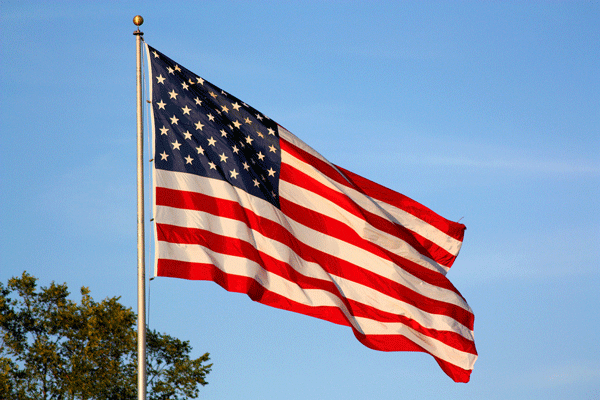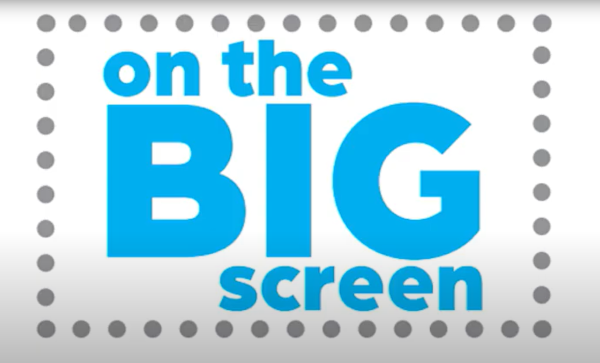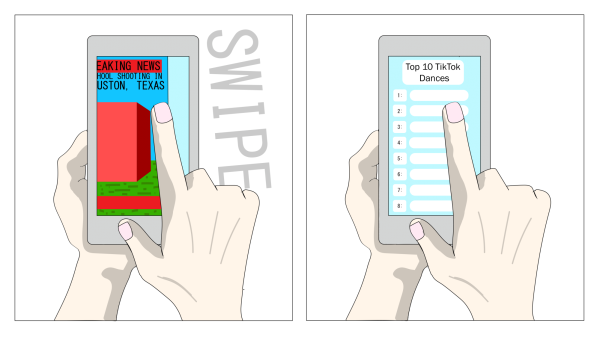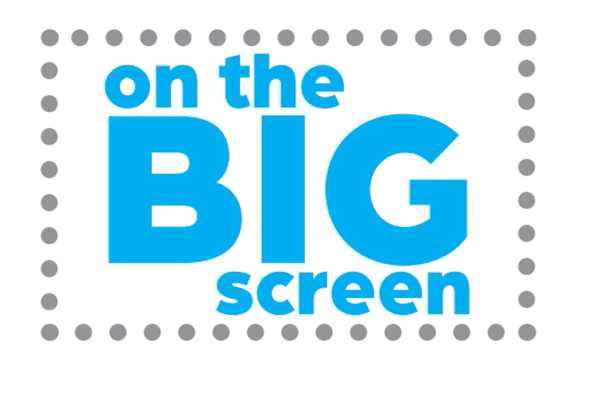Are we proud to be Americans?
Students should not only say the pledge, but have pride in every word

When the announcements come on in the morning, they are easy to tune out. Everyone is half asleep, and standing for the Pledge of Allegiance seems like more of a chore instead of a right.
Students do not seem to remember that generations of Americans have taken pride in the same pledge. Even though this pledge communicates a message of freedom and justice, many students do not feel the need to join in. By rejecting this age old tradition, students are displaying extreme disrespect for the country they live in and its values.
Some students may argue that they do not say the pledge or sit during the pledge because they want to protest the meaning, whether they have a problem with the religious or governmental aspect. Protesting can help correct the imperfections of the country, but there are so many other ways students can protest so their voices are actually heard. Staying silent or sitting in a classroom will not make a difference in society, it will only attract questioning glances from peers and teachers. Maybe celebrities can get the attention of millions if they pull an un-patriotic stunt, but a student is just a student. At best, it elicits reaction, not action, and barely even that.
The majority of students do not have a reason for not saying the pledge, they simply are not compelled to do so. This could be because that they do not understand the meaning behind the words, but the more probable explanation is that they are too lazy to care. Mumbling the words under their breath is better than nothing, but it is not quite enough. In elementary school, all students stand in the morning and recite the pledge with pride. Elementary school students understand that saying the pledge is important, but high school students so not seem to be able to grasp this simple concept, despite their advanced schooling. Somewhere between the years, students have lost their appreciation for their country that once seemed so simple, and dissolve into laziness, paranoia, or half-hearted attempts at protest.
Maybe they have read one too many dystopian novels. Reciting the pledge, everyone vowing their soul to the nation, standing dead still, hands over their heart, and speaking in unison may seem a little foreboding, but isn’t it also encouraging? Think of it like a song at a concert. Everyone is singing along—or in this case, speaking along—because they care about the song and love the artist, not because they are forced to. Students should not have to say the pledge because their school is forcing them, this should be a way students can first-hand honor this nation.
This country is divided in many ways, and it is nearly impossible to find a common trait among all Americans, except the fact that we are Americans. Regardless of a person’s feelings toward others or the government, they should still respect America for the country that it is. Reciting the Pledge of Allegiance is a reminder of the principles the country was built on.
Freedom, pride and justice still represent the main foundations of patriotism. Lines in the pledge say that Americans are united and indivisible, and although we are not as united and indivisible as we should be, there are a countless number of people who would give up everything in order to call themselves American.
Being patriotic is to support your country, not the government, the politicians, or the religion briefly mentioned in the pledge. The country does have flaws, and there are things that still need to be fixed, but the basic freedoms and ideas the country was founded on are still worth respecting. The Constitution, the Declaration of Independence, and countless other documents and laws define our government, but Americans themselves define the country. With so many differing ideas and ongoing arguments, it can be difficult to remember what it really means to be an American, and the Pledge of Allegiance helps us to define and remember the values that all of us hold dear.
Your donation will support the student journalists of Hagerty High School. We are an ad-free publication, and your contribution helps us publish six issues of the BluePrint and cover our annual website hosting costs. Thank you so much!






